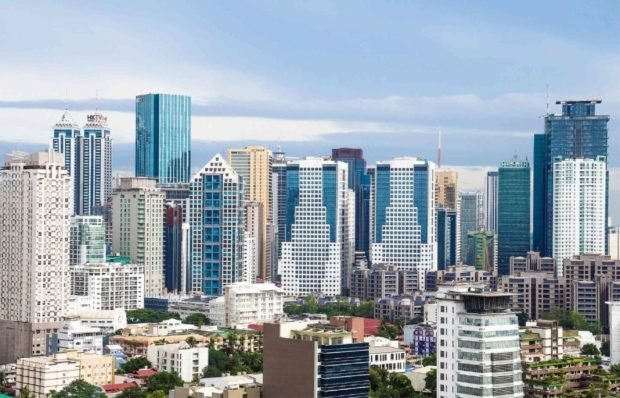MANILA, Philippines – London-based Capital Economics expects the Philippines’ economy to contract during the third and fourth quarters amid the coronavirus disease 2019 (COVID-19) pandemic.
Capital Economics Asia economist Alex Holmes told the Inquirer last Friday that the London-based economic research firm projected the Philippines’ gross domestic product (GDP) growth to slow to 4.7 percent year-on-year in the first quarter.

Its estimates further showed GDP could contract by 3 percent year-on-year during the second quarter and 1.1 percent in the third quarter.
The Philippine economy was expected to recover by the fourth quarter, but by a mere 0.7-percent growth.
In a report last Thursday, Holmes said the economy would “barely grow at all in 2020 as a whole.”
Amid the enhanced community quarantines aimed at containing the spread of COVID-19 in the country, Holmes had said “consumption, the main driver of the economy, is set to slump.”
“What’s more, the drag on the tourism sector is set to worsen. Travel across the world is grinding to a halt as more and more countries advise their citizens against overseas travel and many close their borders to international visitors. Tourist expenditure in the Philippines generates about 2.5 percent of GDP,” Holmes had said.
Last week, the economic team unveiled a P27.1-billion fiscal support package for COVID-19 response, of which more than half will go to tourism-related projects and programs.
“Meanwhile, the outlook for exports has deteriorated significantly. We are now forecasting a deep global recession, with world GDP set to fall by 1 percent this year, which would be a sharper fall than during the global financial crisis. While the Philippines is less trade-dependent than most in the region, a sharp drop in exports would still weigh heavily on growth. Foreign direct investment (FDI) and remittances are also likely to be hit hard,” said Holmes.
Capital Economics nonetheless sees growth rebound next year—3.7 percent year-on-year in the first quarter of 2021, 12.5 percent in the second quarter, 9.9 percent in the third quarter, and 7.4 percent in the fourth quarter, Holmes said.
GSG


